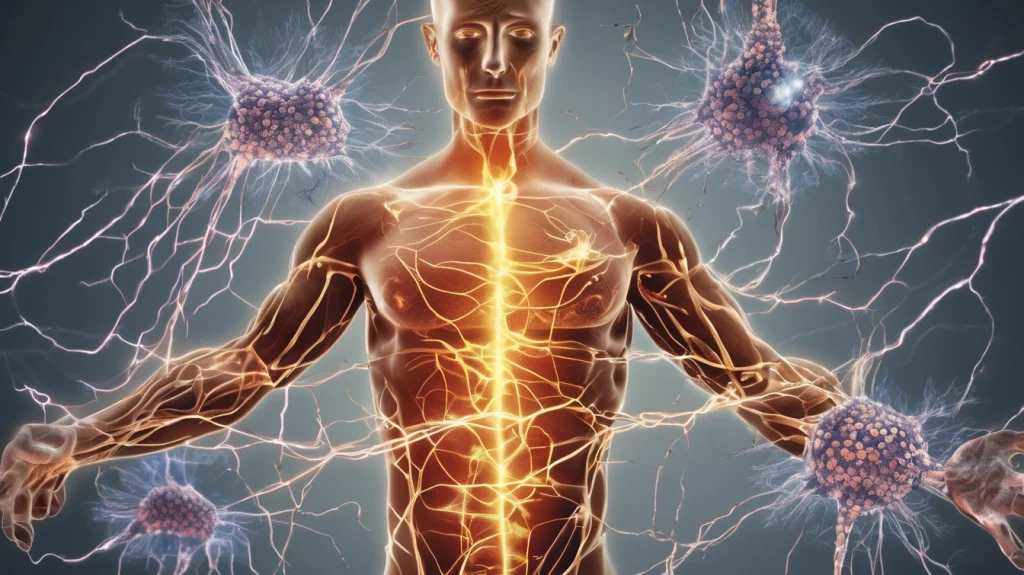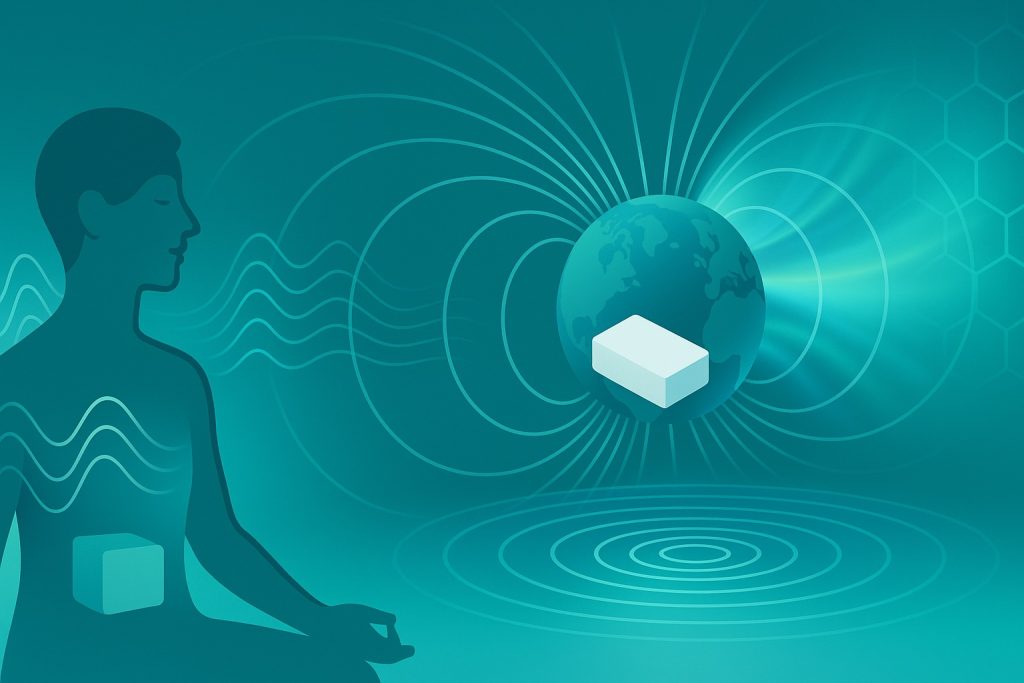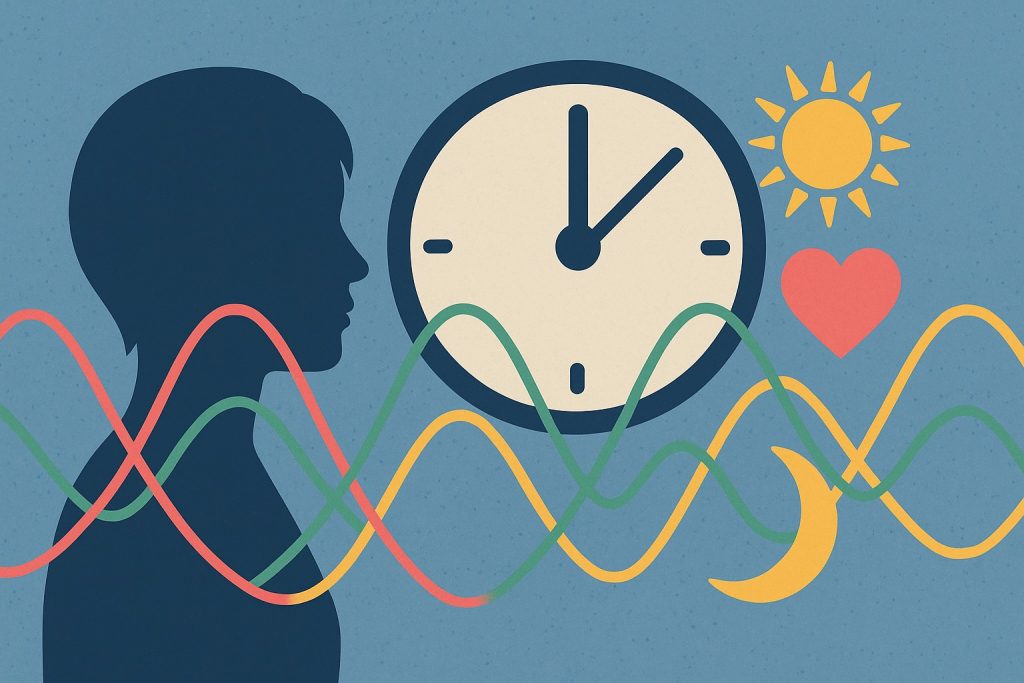Hypoadrenia – fatigue you can’t see
In today’s world, where nervous tension, overstimulation and lack of rest are becoming a daily occurrence, more and more people are experiencing unexplained drops in energy, difficulties with recovery or emotional fluctuations. Although many of these symptoms do not formally qualify as a disease entity, the phenomenon of hypoadrenia, also known as adrenal exhaustion syndrome, is increasingly being discussed.
Unlike acute cases of hormonal insufficiency, hypoadrenia develops insidiously – over months or years – lowering the body’s adaptive capacity. The nervous, immune and endocrine systems become increasingly overloaded. Although classical academic medicine often overlooks the subject, patients experience real discomforts: chronic fatigue, concentration problems, sleep disturbances or a feeling of “inner tremor.”
The adrenal glands, though small, are responsible for producing key stress hormones – cortisol, epinephrine and aldosterone – which regulate blood pressure, blood sugar levels and inflammatory responses. When they are overloaded, physiological chaos ensues, which can manifest itself in a number of ways – from mild symptoms like irritability or a feeling of constant tension, to more serious ones like cardiac arrhythmias or chronic constipation.
Magnetorelaxation as recovery support
More and more people are looking for ways to not only alleviate the effects of chronic stress, but also to promote physiological recovery processes. One such approach is the application of pulsed electromagnetic fields (PEMF) to regions associated with the endocrine system – for example, in the kidney area, where the adrenal glands are anatomically located.
💡 Although the MIM-2 Modular Magnetic Impulsator is not a medical device and is not intended for diagnosis or treatment, its application to areas associated with tension and overload can be part of a personal ritual to aid tranquility and balance.
Related articles and educational tracks:
- 🔗 Stress, tension and insomnia – how the body reacts
- 🔗 What is magnetosupplementation and how to use it?
- 🔗 Why sleep with MIM-2 under your pillow – Schumann wave harmonization
Let’s buy a book and consider …
Before we decide to have another cup of coffee or a nervous system stimulant supplement, it’s worth stopping for a moment and thinking: is it just fatigue, or is it already a chronic strain on the adrenal-pituitary axis? And doesn’t our body need less action and more quiet these days?
Hypoadrenia – Why relax by wearing MIM-2 on your kidneys
One of the ailments, even growing into an epidemic of the modern world, is hypoadrenia, or so-called adrenal exhaustion. The term epidemic is not at all exaggerated. It is likely that most of us – if not everyone – has weakened adrenal glands, as evidenced by many of the somatic symptoms we experience on a daily basis. According to medical authority on the subject Dr. Michael Lam, each of us is likely to suffer from greater weakness of these glands several times over the course of our lives. This may be due to a change of residence, demanding college exams, excess responsibilities at work, financial difficulties, layoff or unemployment, illness, the demands of caring for a young child or supporting a disabled or ill family member.
Such situations and life’s turmoil are not indifferent to our health and well-being. They upset the endocrine system and cause various physical symptoms. It’s good if the stress factor subsides or mellows… then usually without specific remedies, after some time, the body returns to equilibrium on its own. Worse if the stressors overlap or last permanently for a long time. Then the adaptive mechanisms break down and we need specific help. This makes it all the more valuable to know how to support the functioning of the adrenal glands (which are significantly exploited in all kinds of stress reactions) so that they can function optimally again.
ISBN 978-83-64818-44-8 format: 140 x 210 mm binding: softbound volume: 124 pages Cover price: PLN 30.00 (including 5% VAT)
Find the current discount offer at www.bialywiatr.com
The book answers the questions:
– How, in terms of individual systems, does chronic stress affect our bodies
– What is General Adaptive Syndrome (GAS) and what phases does it have? – What is the biochemistry of the stress response
– What are the basic functions of the adrenal glands and the hormones they produce
– What are the causes, symptoms and phases of adrenal exhaustion
– How does academic medicine address hypoadrenia
– What are the diagnostic problems with adrenal exhaustion
– How does Chinese medicine address hypoadrenia
– How to promote adrenal regeneration
– How long does it take to recover from different stages of hypoadrenia
The following is a list of symptoms prepared by Dr. Michael Lam* – a specialist in endocrinology and anti-aging medicine, author of Adrenal Fatigue Syndrome (2016) who has been researching and publicizing the topic of adrenal exhaustion in the medical community for many years. According to him, hypoadrenia syndrome can be accompanied by any of the following symptoms or complaints. The greater the frequency or intensity of the symptoms listed, the more likely it is that adrenal exhaustion may be affecting us:
– You find it difficult to fall asleep despite being tired.
– You wake up in the middle of the night for no apparent reason.
– Heart palpitations at night, or when you are stressed/under stress.
– Consistently low blood pressure.
– Low libido and lack of sex drive.
– Poor thyroid function, often despite taking thyroid medication.
– Feeling of hypoglycemia despite the fact that the results of the sugar test are normal.
– Depression… often there is no improvement after antidepressants.
– Endometriosis.
– Polycystic ovary syndrome.
– Uterine fibroids.
– Breast Mastopathy.
– Hair loss with no apparent cause.
– Stress-induced irritability.
– Anxiety.
– Panic attacks.
– The feeling of being “turned on” and the inability to relax.
– Disentangling the body.
– The feeling of an adrenaline rush in the body.
– Inability to collect thoughts.
– Inability to cope with even minor daily stress.
– Waking up in the morning feeling tired after sleeping through the night.
– Feeling of fatigue in the afternoon, between 3:00 and 5:00 pm.
– Inability to assimilate simple carbohydrates.
– Need to drink coffee in the morning and during the day to function.
– Coffee, tea and stimulant drinks cause an adrenaline spike and adrenal crisis (fatigue, nausea, lack of appetite, weakness, vomiting, abdominal pain, hypoglycemia and hypertension).
– A feeling of fatigue between 9 and 10 pm, but there is resistance to going to bed.
– Craving for fatty and high-protein foods.
– Craving for salty foods like French fries, chips, fast food.
– More dry skin than usual.
– Hair loss for no apparent reason.
– Initially, physical exercise helps, but then it exacerbates fatigue.
– Hypersensitivity to chemicals like hair dyes, dish and laundry detergents, nail polish, plastics.
– Hypersensitivity to electromagnetic energies, including cell phone and
computer monitors.
– Chronic food allergy, especially to dairy and gluten.
– Inability to get pregnant, in vitro fertilization required.
– Postpartum exhaustion and depression.
– Recurrent miscarriages during the first trimester of pregnancy.
– The accumulation of fat on the abdomen for no apparent reason.
– Intolerance to temperature, especially to heat and sunlight.
– Painful menstruation progressing to absence of menstruation.
– Premature menopause.
– Constipation for no apparent reason.
– Joint pain of unknown origin.
– Atrophy of muscle tissue.
– Muscle pain from an unknown cause.
– Cold hands and feet.
– Early skin aging.
– Inability to focus and concentrate.
– Psoriasis of unknown cause.
– Gastritis despite normal gastroscopy results.
– Lower back pain of unknown origin, test results normal.
– Dizziness of unknown cause.
– Poor fructose absorption.
– Chronic tinnitus. Hypersensitivity to noise.
– Bilateral numbness and tingling in the extremities.
– Recurrent mouth ulceration.
– Shortness of breath despite no respiratory problems.
– Ovarian cysts.
– Breast cancer combined with estrogen dominance.
– Graves’ disease.
– Chronic thyroiditis, Hashimoto’s disease.
– The feeling of “heavy legs.”
– Bruises under the eyes that do not go away after resting.
– Loss of healthy skin color on the face.
– A feeling of tension throughout the body and an inability to relax.
– Postural orthostatic acceleration of heart rate.
– Irritable bowel syndrome with constipation more prevalent than diarrhea.
– Chronic fatigue syndrome unresponsive to treatment.
– Fibromyalgia not resolving after conventional treatment.
– Systemic Candida.
– Electrolyte imbalance despite correct laboratory results.
– Irregular menstrual cycle, periodic stoppage of menstruation.
– Lyme disease, unresponsive to treatment or intolerance to drugs.
– Helicobacter Pylori infection.
– Memory and concentration problems.
The above list is not for a definitive diagnosis of adrenal exhaustion syndrome. However, it is a first, self-directed step towards determining one’s health status, addressing any doubts or, if necessary, consulting a doctor. So if there are any suspicions arising from specific somatic symptoms, reviewing the list, can become a reason to take further action.





